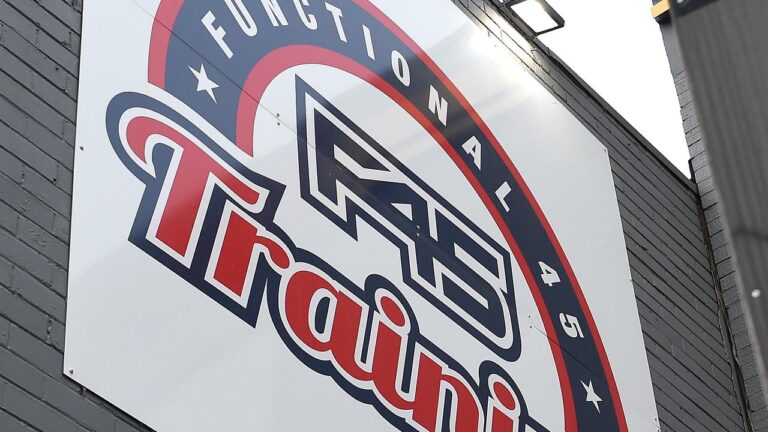
A struggling Australian fitness franchise that has been savaged on the stock markets is now facing not one, but five potential lawsuits.
F45 Training Holdings Inc, known for its high intensity interval training (HIIT) classes, was at first an Australian success story after hitting the New York Stock Exchange in July last year and raking in $500 million on the first day.
But two weeks ago things drastically changed; the company’s founder and CEO Adam Gilchrist stepped down while 110 employees were laid off and expansion plans were slashed significantly.
Stock prices plunged off the back of the news and dipped to 62 per cent of its original price at its lowest, when it sank to $US1.35 ($A1.90) on July 27.
At time of writing, according to MarketWatch, F45 stock was trading at $US2.15 ($A3) compared to its listing price of $US16 ($A22.50) just a year earlier.
Now five heavyweight class action law firms from the US are calling for investors to come forward to explore the possibility of filing a class action.
The firms are investigating whether F45 misrepresented itself to investors and the most recent legal firm only announced it was investigating the company on Friday.
In July last year at its initial public offering, F45 sold 18.75 million shares of stock priced at $US16.00 per share.
It had a stunning $US1.46 billion ($A2 billion) market capitalisation however that has since slipped to $US183.6 million ($A258.60).
In May, F45 thought it had secured a $US250 million ($A350 million) line of credit to keep rapidly expanding but by the next investor’s meeting in July, this had fallen through.
But during the July trading update, investors learnt that credit line would not be available.
After planning to roll out 1500 new franchises this year F45 will instead aim for between 350 and 450 and its forecasted revenue has dropped from $US275 million ($A387 million) to $US130 million ($A182 million).
F45 fitness founder and CEO Adam Gilchrist – not to be confused with the cricket player of the same name – reportedly immediately listed his house on the market after the downfall.
Coincidentally, the same weekend that another law firm announced it was investigating the possibility of a class action, Mr Gilchrist successfully sold his $A14 million Sydney home.
Mr Gilchrist and Rob Deutsch founded the company in 2013 in the Sydney suburb of Paddington but Mr Deutsch left in February 2020 and said he was devastated to hear what had happened since then.
“Never in my wildest dreams could I have imagined this,” Mr Deutsch wrote on Instagram after the shock news of the lay-offs. “When I exited, and sold out of F45, I left a healthy, phenomenal, beast of a business. All the way from the company culture to the heart beat of the business … The workouts. F45 was special.
“I genuinely hope all of the 110 laid-off staff, find happiness and opportunities elsewhere.”
News.com.au has contacted F45 for comment.
On Friday, US law firm Labaton Sucharow called for investors to get in touch, the latest in a string of legal firms circling F45 like sharks.
Prior to that, Schall Law Firm, a US shareholder rights litigation firm, announced last Tuesday that it was investigating F45 “for violations of the securities laws”.
Then there was Bragar Eagel & Squire, P.C., another shareholder rights specialist, which started its own investigation a day later.
Bragar Eagel & Squire stated the company’s revenue was “ down significantly” compared to what was previously promised to investors.
James Wilson of Faruqi & Faruqi also called for investors who have “suffered losses exceeding $US50,000 ($A70,450) investing in F45 Training stock or options”.
Portnoy Law Firm also weighed in, saying it was investigating “possible securities fraud” and that it would provide a “complimentary case evaluation and discuss investors’ options for pursuing claims to recover their losses”.
Embattled CEO sells home
Mr Gilchrist reportedly listed his Sydney mansion, located in Freshwater in the city’s northern beaches region, on the market following his company’s stock crash.
Over the weekend, it’s understood to be have been sold.
The Sydney Morning Herald reported that strict gag orders prevented the real estate agents from disclosing its final price.
However, they did confirm it sold for more than he bought it for in 2019, which was $14 million.
Realestate.com.au reported that it sold more than $1 million over the reserve.